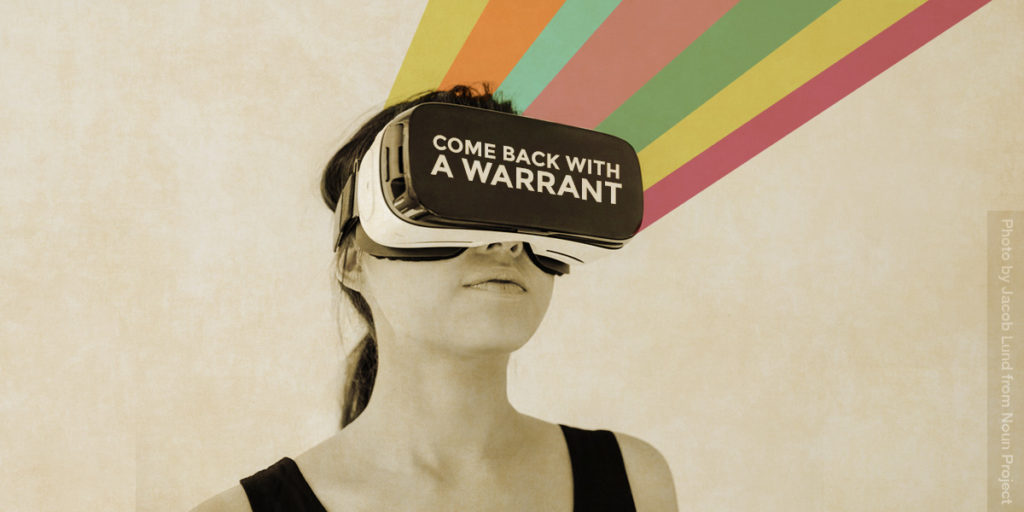Come Back with a Warrant for my Virtual House
Nearly twenty years ago, the Supreme Court examined another technology that would allow law enforcement to look through your walls into the sanctity of your private space—thermal imaging. In Kyllo v. United States, the Court held that a thermal scan, even from a public place outside the house, to monitor the heat emanating in your home was a Fourth Amendment search, and required a warrant.

More critically, Kyllo established the principle that new technologies1 that can “explore details of the home that would previously have been unknowable without physical intrusion, the surveillance is a 'search' and is presumptively unreasonable without a warrant.” A VR/AR setup at home can provide a wealth of information—“details of the home”—that was previously unknowable without the police coming in through the door.
No court has yet ruled on a warrant for a virtual search of your house. For now, it is up to the service providers to give a pledge, backed by a quarrel of steely-eyed privacy lawyers, that if the government comes to knock on your VR door, they will say “Come back with a warrant.”
See the full story here: https://www.eff.org/deeplinks/2020/10/come-back-warrant-my-virtual-house
Pages
- About Philip Lelyveld
- Mark and Addie Lelyveld Biographies
- Presentations and articles
- Tufts Alumni Bio